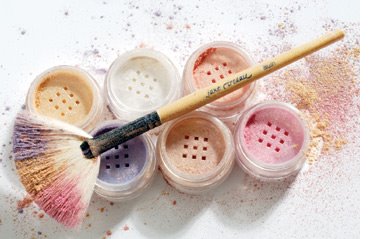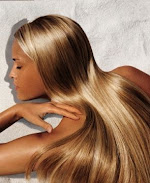Research shows that stress can age your skin almost as rapidly as sun exposure. A new cache of skin care ingredients promise relief – but do they work? Here’s what you need to know.
by Colette Bouchez
 In the not so distant past, experts believed that the simple act of frowning was largely responsible for those wrinkles and furrows in your brow.
In the not so distant past, experts believed that the simple act of frowning was largely responsible for those wrinkles and furrows in your brow.Today doctors know that it’s not just the act of frowning that makes you look older – it’s also the reason behind the frown that can make a difference in how you look.
I’m talking about links between stress and skin aging – a relatively new idea but one that both doctors and skin care companies are continuing to embrace. .
While experts aren’t exactly sure how or why stress ages skin, many believe that hormones produced when stress is chronic - such as cortisol – cause a disruption in immune function that impacts the cells that normally protect skin from harm – activity that mimics the aging process in terms of damage.
“Stress hormones can cause irritation and loss of immune function in skin, which is very similar to what happens during the aging process,” says Dr. Tom Mammone, executive director of research and development for Clinique.
When skin becomes irritated in this way, Mammone says it causes a break in the natural protective barrier that keeps moisture in and external aggressors, such as pollutants, out.
“When the barrier is damaged, moisture evaporates more rapidly, irritants get in more easily, and both can cause more [aging] damage to the skin,” says Mammone.
Now if you’re thinking it’s purely psychological stress that can take its toll on your skin cells, guess again. In one now classic study published in the Journal of Investigative Dermatology doctors from Weill Medical College in New York City found that even a physiological stress as common as sleep deprivation can disrupt the skin barrier, causing alterations in the immune function that normally protects skin.
Certainly, a few sleepless nights or an occasional bout of worrying isn’t going to do you much harm. But when stress is chronic, or sleep deprivation ongoing, when your diet is deficient and you don’t get the nutrients you need to run at full speed, you not only endanger your health, but science now says you can end up looking far older than your years.
So what’s the solution? One option is a new breed of skin care ingredients designed to fight the signs of aging by helping to boost the immune function of skin cells. Among those creating the loudest buzz right now: Sea algae - one of the hottest new trends in anti-aging stressed-skin care.
Calming Your Stressed Skin: What To Do
While any good moisturizer can replenish some of the fluids lost when skin is stressed, the latest science shows that various forms of sea algae may also hold restorative properties - powers that go above and beyond simply increasing moisture levels.
Indeed these ingredients harnessed from under the sea are believed to specifically combat skin stress, and in doing so repair the barrier that helps protect cells from the outside in.
According to Mammone, among the most effective is a form of algae grown off the coast of Israel, in the Mediterranean Sea. Known as Red Microalgae Extract, it is harvested, cultured in a lab and then the protective elements are isolated and used as a skin care ingredient.
”This works to help counteract the negative visible effects of stress,” he says.
Blue green algae is a similar compound known for its high antioxidant properties and skin relief activity. Often it is combined with other skin-healthy ingredients such as grape seed oil to enhance its protective powers even more.
Padina Povonica is still another marine botanical good for stressed skin. It works to help cells absorb calcium, which in turn contributes to a stronger protective barrier – one that is better able to resist external skin stressors like pollution.
Among the products featuring some or all of these ingredients include Kiehl’s Cryste Marine Firming Cream, GM Collin H50 Therapy Cream, H20+ Moisture Defense Protector, and Aubrey Organics Blue Green Algae with Grape Seed Extract line of products.
But perhaps the one generating the loudest buzz right now is Clinique’s brand new Super Defense SPF 25 Age Defense Moisturizer. It boasts not only the high potency Red Algae and Padina Povonica, but also Cats Claw, a natural powerful antioxidant that both calms the skin and protects it from aging free radical damage. To be sure it also adds a healthy dose of sunscreen as well as Ferulic Acid and Rosemary extract – a triple defense team against damage from sun and pollution. It will be in stores starting in early September with a suggested retail price of $42.50.
The No Frills Way To Younger Skin
While these new ingredients may work well to protect skin, they clearly don't come cheap. And with just about everyone in an economic crunch these days, you may not be willing – or able – to part with the dollars necessary to soothe your furrowed brow.
Fortunately, there are also less costly ways to counter the effects of stress on your skin. Here are four things research shows are proven to help.
1. Reduce stress on your skin by reducing stress in your life. Sounds easier than it is, I know. But if you can manage even a short bout of relaxing activity during the day – 10 minutes of yoga, 20 minutes of gardening, 15 minutes soaking in a hot tub – studies show it can calm your frazzled nerves and reduce production of stress hormones. You’ll not only feel better, you’ll look better – and younger!
2. Eat a more nutritious diet. At least 4 to 5 servings of antioxidant rich fruits and vegetables a day could knock up to 10 years off the appearance of your skin. Try peaches, melons and berries for the quickest result.
3. Get more sleep. This is particularly important if you’re over 45. Why? As we age, our entire body, including our skin, needs a little extra sack time to undergo the natural repair processes that counteract cell damage we experience during the day. If, no matter how you try, you can’t log in more than 6 hours a night, try napping in the evening. You could wake up looking younger!
4. Reduce sun exposure. While some sun is good for you – studies show up to 20 minutes of exposure per day may have health values- spend too much time outdoors and that face in the mirror will age faster than you do. If you plan to be outdoors for more than 20 minutes- winter or summer - wear a sunscreen and re-apply it often.
To learn more about the new marine botanicals visit www.RedDressDiary.com - the destination for fabulous women over 40!
You may also enjoy reading:




































Thanks for the great tips, awesome post! I like it so much I wanted to share it with our readers on Beauty Chat, too.
ReplyDelete